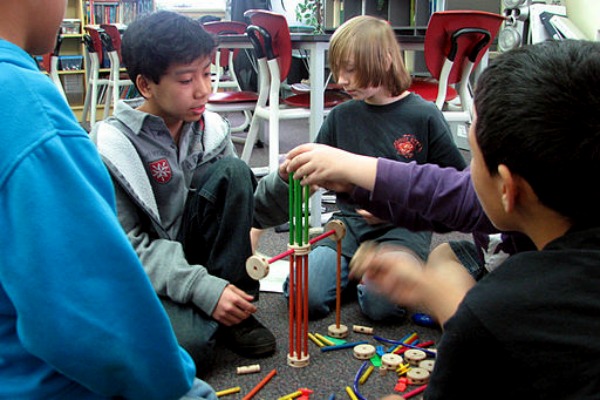Independent Voters Want Less Bureaucracy in School Reform

When it comes to school reform, independent voters say enough with the bureaucracy and politics in order to focus on improving student achievement.
As Congress wrestles with two different bills that could reauthorize No Child Left Behind, and states continue to implement Common Core State Standards, both Democrats and Republicans have coalesced around their factions, leaving bipartisanship behind in favor of rolling out legislation that fits their side’s view of what public school accountability should look like.
It worries many independent voters that true public school reform can’t be accomplished in the current session.
“In looking at independent voters and their views on education, it's important to understand that independents want to de-politicize policy making,” said Jacqueline Salit, president of the Committee for a Unified Independent Party, Inc. (CUIP)
“The 40% of Americans who are independents today made that choice because they don't like being put into an ideological box, and because they think that politicians put the interests of their party ahead of the interests of ordinary people.”
A 2012 study conducted by the Harvard Program on Education Policy ad Governance offered some insight into how independent voters view the public school system. The study indicated that 54 percent of voters who identified as independents favored school vouchers for low-income families and 56 percent thought school unions had “done more harm than good.”
At the same time, the study showed that independents are a bit more nuanced when it comes to other issues surrounding public school reform. When questioned about the required math testing for grades 3-8 and high school as part of No Child Left Behind, support for the assessments was nearly split among independents. About 28 percent of independent voters either completely support or are neutral about the testing, while 33 percent somewhat supported it.
On the other hand, 40 percent of independent voters stated they somewhat supported the adoption of Common Core, which was similar for both Republicans and Democrats.
The hesitance to fully commit to any one sort of policy reflects an independent voter’s desire to weigh all options when figuring out what’s best for students. When it comes to whether federal or state governments should control public education, Salit says that independents find those types of arguments a “red herring” to the real issues:
“The issue is how to promote new ways to help kids develop and to learn. The issue is how to make our educational system relevant to the economic changes in our society and in the world. The issue is what are the real root causes of the achievement gap and what approaches have been proven successful in closing it. Everything else is bureaucracy. “
Ultimately, independents want to see education transform beyond the brick-and-mortar school buildings Americans have been accustomed to for the last century. A 21st century education, Salit says, will come from creativity and the ability to help students develop their social skills beyond a “model of learning based on acquisition of information.”
“Independents are believers in the need for a new political culture that encourages creativity, innovation, and competition. Those views extend to education, too,” she said. “Truth is, we need an entirely new kind of education system, but we won't get there without a dramatic change in the political system.”




